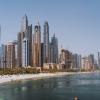
IIASA researchers participated in a workshop which discussed exactly how competition authorities can unentangle themselves from reverse globalization effects and forge a harmonized, ecosystem-based governance approach for digital markets.
The advancements of digital communications and trading technologies have blurred the lines between industries and concentrated market power into the hands of only a few digital platforms. And even though cross-border commercial cooperation and information exchange is widespread, competition regulatory strategies are in fact fragmenting as countries seek to protect their own economic interests and pertinences.
On 7 October 2022, Elena Rovenskaya contributed to an academic workshop titled “Fragmentation and Digital Ecosystems: How the Reverse Globalization Affects Competition and Development of Digital Markets". The workshop was held by BRICS Competition Law and Policy Center in collaboration with the Academic Society for Competition Law (ASCOLA) and hosted by the KIMEP University in Almaty, Kazakhstan as part of the 8th Eurasian Antitrust Forum.
The workshop brought together senior Eurasian policymakers including the Chairman of the Kazakh Agency for Protection and Development of Competition, as well as experienced academics and private sector stakeholders. Among present were Marat Omarov, Chairman of the Agency for Protection and Development of Competition of the Republic of Kazakhstan; Asadulla Kayumov, First Deputy Chairman, Antimonopoly Committee of the Republic of Uzbekistan; and Marina Amelina, Government relations Director at Baring Vostok. Rovenskaya presented IIASA’s recent interdisciplinary research on the application of complex adaptive systems theory to understand digital platform ecosystems as complex structures with interactions of several agents. IIASA's Advancing Systems Analysis (ASA) program is currently undertaking this research as part of the ECOANTITRUST project.
ECOANTITRUST explores how ecological ecosystems can provide a useful source of inspirational insight into the mechanisms and interactions of digital platform ecosystems. Launched in January 2021, the primary aim of this project is to develop a set of mental models and methodologies which equip competition authorities with the fundamental understanding of the dynamic structures and networks which have set digital platform ecosystems apart from non-digital enterprises.
"Understanding digital platforms through the metaphor of natural ecosystems gives a more adequate perception of the structure of this business," noted Rovenskaya. Her presentation also emphasized how regulators and experts have turned to ecological models in previous times of crises. For example, in the aftermath of the 2008 Great Recession, few prominent experts published advocating for the use of systems-wide assessment of the financial sector and a re-prioritization of diversity and resilience for banks – a publication by the former Chief Economist for the Bank of England was one notable example.
Read more on the workshop hosted by KIMEP University, Almaty, and the 8th Eurasia Antitrust Forum here.
News

01 February 2024
ASA at COP28: Carbon farming for Central Asia

27 November 2023
Exploring Promising Pathways for Carbon Farming and Sustainable Land Management in Kazakhstan

24 October 2022
